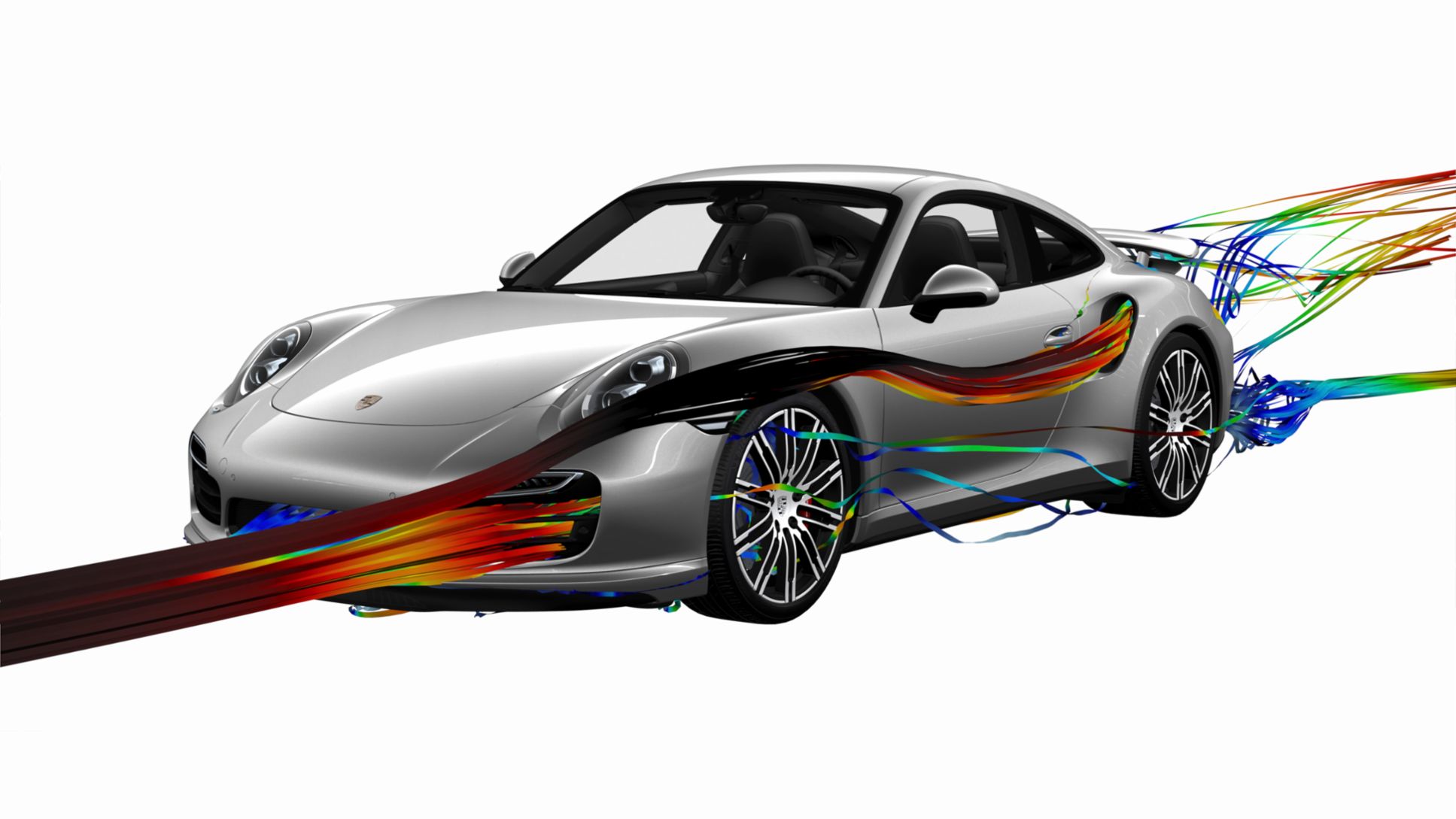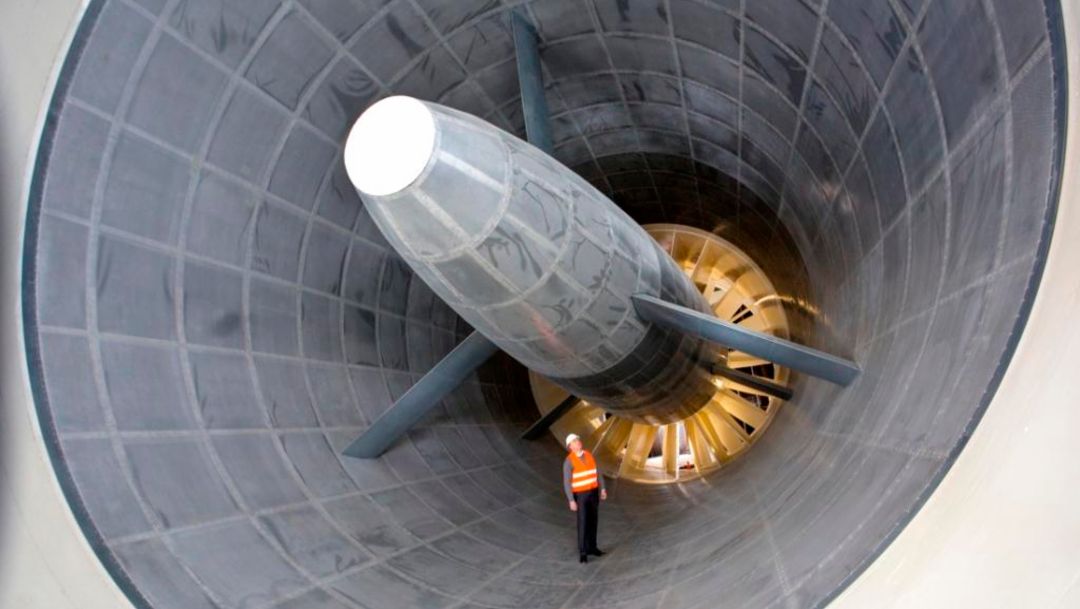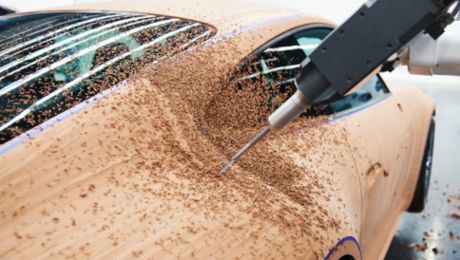In the design process the Porsche team makes multiple use of the wind tunnel, from the early stage of developing conceptual designs right through to testing vehicles ready for full production. The building and equipment for the wind tunnel represent the most extensive single element of the sports car manufacturer's 150 million euro investment at this site.
The high-tech wind tunnel sets new standards in airflow quality by producing air that is both uniform and low in turbulence and noise. Measuring eight metres in diameter, the fan has extremely lightweight carbon vanes and can generate wind speeds of up to 300 km/h in the measurement section around the test vehicle.
While aerodynamic measurements are being taken, the ground below and around the test object is also moved at the wind's speed. This ensures an airflow that closely approximates reality along the entire underside of the vehicle and around its rotating wheels. The latter are driven at identical speed by conveyor belts arranged within the surface of the wind tunnel weighbridge. Mounted on its own decoupled foundations, the sub-floor weighbridge measures the forces being exerted on the vehicle model with extreme accuracy and reproducibility for all measured quantities.
Noise-damping measures in the entire air circuit and above all the sound-absorbing inner walls of the measurement section result in an extremely quiet flow of air around the vehicle. Hence it is possible to identify any sources of noise at the vehicle with great precision. Highly sensitive acoustic instrumentation around the test object localises any such sound sources three-dimensionally. The wind tunnel has a closed (Göttingen type) air circuit and impresses with outstanding efficiency figures. When the fan is slowed down after a measurement a large part of the brake energy is fed back into the power grid.
The core objectives of the new wind tunnel lie in more energy-efficient aerodynamics, even greater motoring safety and even better ride comfort for future vehicle generations.
Consumption Data
911 Turbo: Combined fuel consumption: 9.7 l/100 km; CO₂ emission: 227 g/km
911 Turbo S: Combined fuel consumption: 9.7 l/100 km; CO₂ emission: 227 g/km


